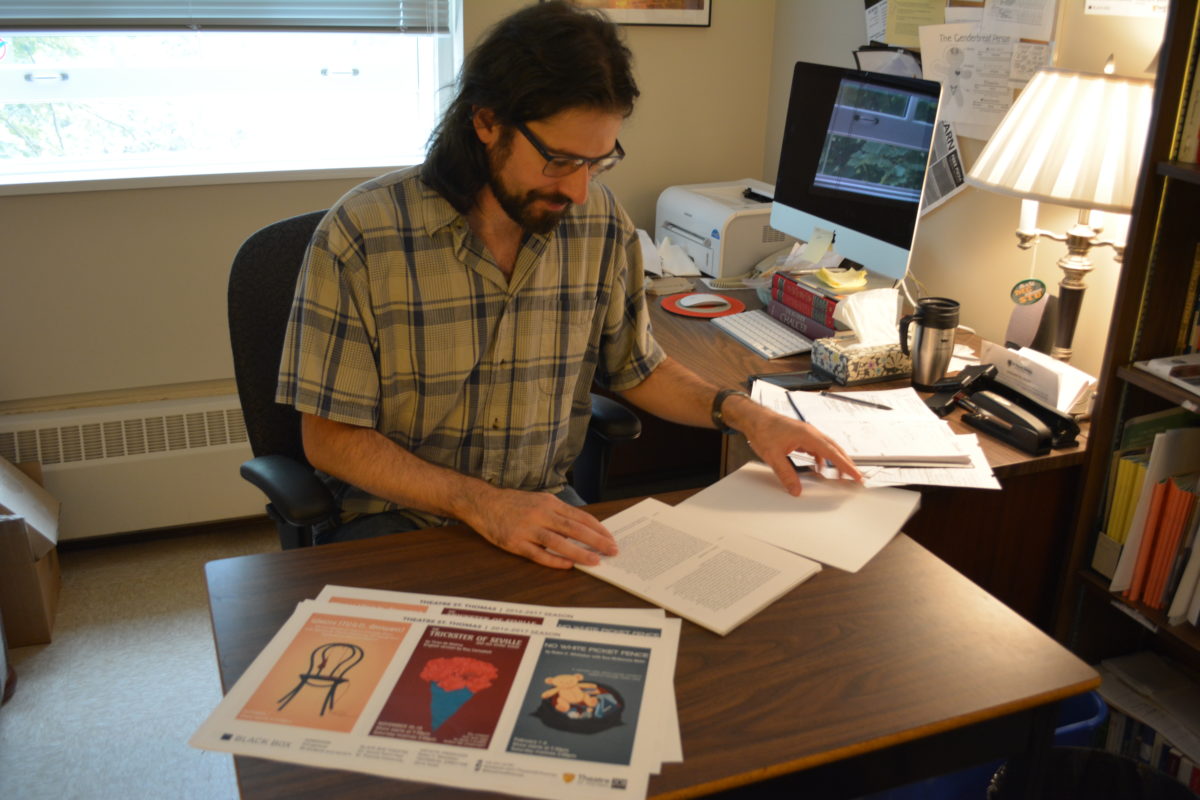
The idea of using of verbatim theatre for disseminating research analyses is breaking ground among academics and researchers.
In the age of information overload, the general public does not have the time or desire to read academic research papers and journals. So researchers like St. Thomas Social Work professor Sue McKenzie-Mohr are looking to verbatim theatre as an alternative way to communicate their research findings.
McKenzie-Mohr and St. Thomas English and Drama professor and Theatre St. Thomas advisor Robin Whittaker have written Fredericton’s first verbatim play, which opens in the BlackBox Theatre next semester. The play’s text is solely taken from interviews conducted by McKenzie-Mohr as part of her research on women’s experiences in the Canadian foster care system.
Unlike documentary plays, which blend true stories with the literary and poetic calculation that you find in a fictional work, verbatim uses only exactly what was said and done by real people.
In the past decade, plays like London Road by Alecky Blythe, a verbatim musical, and Annabel Soutar’s Seeds have helped edge verbatim theater closer to the limelight.
Now, however, it seems verbatim theatre stands the chance to get even bigger.
McKenzie-Mohr said her initial interest in finding a different way to present her research project came from questioning how effective the traditional dissemination of her interpretations of data have been.
“That’s a question being asked by many researchers today, particularly in the social sciences,” she said.
“I was also interested in exploring how else… some of the power that I experienced when I was in the midst of those interviews [could] come through in a way that I felt often didn’t when they were just snippets on paper.”
Sharrisse LeBrun is a recent St. Thomas graduate and currently pursuing her masters in Drama, Theatre and Performance Studies at University of Toronto. She was introduced to verbatim theater in a script-writing class last year with Whittaker, and wrote her own short verbatim piece as an assignment for the class.
“I do think there is a rise in plays being used as research, conversation, and a tool for issues of social justice, and that verbatim theatre is a perfect medium for this,” said LeBrun.
“It’s also becoming popular in academia because it is a really interesting and different way to disseminate research. The Middle Place, for example, reached far broader audience than those who read academic research on youth homelessness. It played to the general public, various schools, the group home from which the interviews came, and a certain amount of tickets for each performance were given to youths from group homes.”
Whittaker agrees that verbatim is useful to academics looking to get their message out to broader and more diverse audiences, which could explain some of the draw to the genre.
“Scholars have certainly started giving it more attention… Seeds and now The Watershed [another verbatim play by Annabel Soutar], those two plays have really gained national attention,” he said.
Verbatim theater takes the textual and audio-visual data recorded in research interviews, and presents it in an unaltered way that it allows the play to be given and taken as data.
“What verbatim theater does is it’s taking what people said and the way people said it and presenting that in front of you, and essentially says ‘Make a choice here about what you think about this.’ And it doesn’t pretend that it’s telling you the answer, it doesn’t say ‘This is what you should think about it,’” Whitaker said.
This is not to say verbatim does not have an agenda or lacks bias. The selection process- what the playwright chooses to include and what to leave out, and the order in which the information is presented- doesn’t always show the whole picture.
Verbatim theatre “is always political,” Whittaker said. “It always deals with people in crisis in some way or another.”
“You can deal with really contemporary events, but in a way where you can say ‘but that’s what they said, it’s right there.’”
How and if researchers will begin to shift the dissemination of their interpretations remains to be seen. However, the potential verbatim plays have to be used to present research projects is clear.
As more academics like McKenzie-Mohr seek out alternate ways to share their research with the world, it is likely verbatim plays, or some form of them, will become more common. When, ‘Did you read my latest scholarly journal?’ becomes ‘Did you see my latest verbatim play?’ it will be obvious that verbatim is the new way scientists and academics are choosing to share their information.
